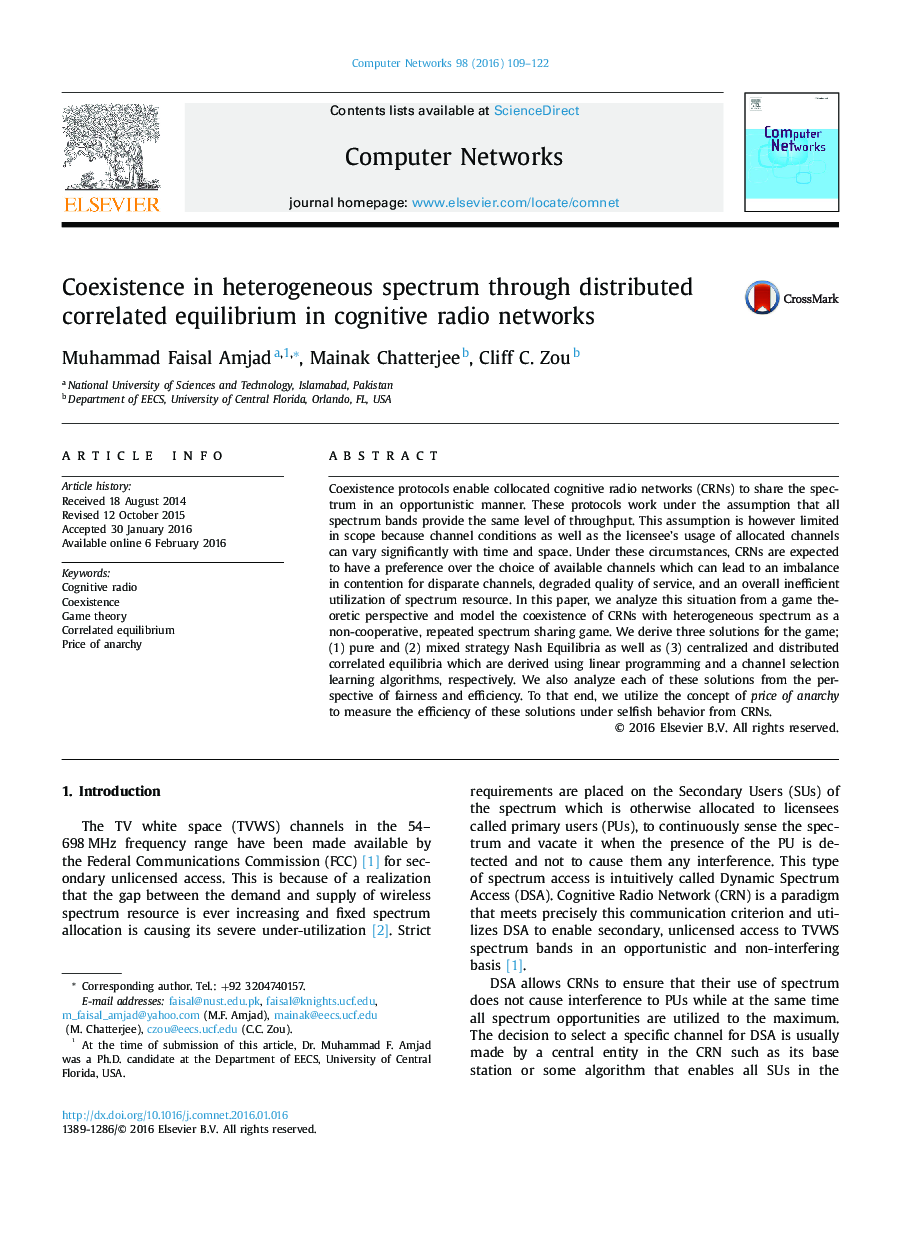| Article ID | Journal | Published Year | Pages | File Type |
|---|---|---|---|---|
| 450676 | Computer Networks | 2016 | 14 Pages |
Coexistence protocols enable collocated cognitive radio networks (CRNs) to share the spectrum in an opportunistic manner. These protocols work under the assumption that all spectrum bands provide the same level of throughput. This assumption is however limited in scope because channel conditions as well as the licensee's usage of allocated channels can vary significantly with time and space. Under these circumstances, CRNs are expected to have a preference over the choice of available channels which can lead to an imbalance in contention for disparate channels, degraded quality of service, and an overall inefficient utilization of spectrum resource. In this paper, we analyze this situation from a game theoretic perspective and model the coexistence of CRNs with heterogeneous spectrum as a non-cooperative, repeated spectrum sharing game. We derive three solutions for the game; (1) pure and (2) mixed strategy Nash Equilibria as well as (3) centralized and distributed correlated equilibria which are derived using linear programming and a channel selection learning algorithms, respectively. We also analyze each of these solutions from the perspective of fairness and efficiency. To that end, we utilize the concept of price of anarchy to measure the efficiency of these solutions under selfish behavior from CRNs.
